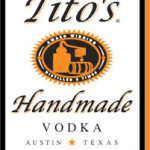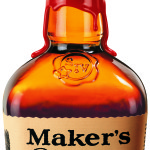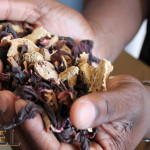When is the term ‘craft’ authentic and when is it marketing hype?
 The spirits industry has seen amazing growth of craft distillers and brands. The Distilled Spirits Council of the US (DISCUS) has reported that there are nearly 730 “small” distilleries producing 3.5 million cases in 2014 (up from 700,000 in 2010) and with revenues of nearly half a billion dollars.
The spirits industry has seen amazing growth of craft distillers and brands. The Distilled Spirits Council of the US (DISCUS) has reported that there are nearly 730 “small” distilleries producing 3.5 million cases in 2014 (up from 700,000 in 2010) and with revenues of nearly half a billion dollars.
This craft spirits development is here to stay based on a number of factors including the interest in whiskies of all types; consumer trends regarding connoisseurship, craftsmanship and artisanal products in general; the focus on ingredients, process, and the distiller; and, attention to what’s in the bottle.
There are other forces at play here, particularly the rejection of mass-produced products in favor of small batches and hand crafted. A phenomenon affecting all consumer businesses from packaged goods to durables.
So it’s not surprising that the power of the words, “craft” “handmade” “small batch” would be adopted by large brands and used despite the intent of these words. When a brand sells hundreds of thousands or millions of cases, one needs to wonder whether the use of these words is marketing hype (as in “smooth”) or outright fraud. At the same time, there are also small distillers jumping on the bandwagon without the real credentials.
The lawsuits
The best and most succinct coverage of what is going on is to be found in the Feb 16, 2015 edition of Wine & Spirits Daily, under the headline, Truth Squad Discusses Transparency in Labeling Lawsuits. The “Truth Squad” is a panel of WSD readers (manufacturers and wholesalers) who express their professional views on a range of issues affecting the wine and spirits businesses.
There are a number of cases involving court action related to labeling:
- Templeton Rye was sued for claiming it was made in Templeton, Iowa when in fact it is made in a large multi-brand distillery. The implication was that the brand was a small batch product. They have since revised their label.
- Tito’s Vodka is being sued in California and Florida for the label claim that it is handmade as in, Tito’s Handmade Vodka. At roughly a million cases, how can you call yourself handmade? Unless, of course, you count turning on

Tito’s label the lights as part of the process.
- Maker’s Mark is also being sued for claims related to “handmade.” According to USA Today, “The lawsuit…accused the distillery of deceptive advertising and business practices with its “handmade” promotion on the labels of its bottles, known for their distinctive red-wax seal.” I know that they hand dip each bottle in the wax but can you totally hand make 1.3 million cases?

Don’t get me wrong… I think these are outstanding, well-made products. I’m a fan of each of them but the words in question are not marketing hype words like “smooth” or “premium.” To many people, the misuse of these words appears to be deceitful.
Enter the Truth Squad
One member thinks too much is being made of this issue and suggests that the consumer doesn’t know or care. Maybe. But, how about the genuine small batch or craft distiller who has invested their life savings in a distillery and whose livelihood depends on it?
Another view was that it’s the lawyers “who make a fortune” with spurious lawsuits that are behind it all. Perhaps. People who are looking for the real deal deserve not to be cheated with misleading claims. And, if the regulatory people won’t deal with it, then the courts should.
A distributor executive put it nicely when he/she said,
“I think that the average consumer feels better about purchasing something with the perceived or real support to a small company, and dislike it when they find out it’s just part of a huge corporation. It would be…like someone buying… produce at a big box store, and then taking it to the Farmer’s Market on a Saturday wearing overalls, and making money on the perception that they are a farmer.”
What’s the answer?
Simply put, there needs to be a standard by which those using of the word ‘craft’ (and related phrases) are held accountable. Don’t expect the alcohol governing body (TTB) to do it. Even if they were so inclined, they don’t have the resources to police these types of label claims. For the same reasons, forget about the Federal Trade Commission.
I think the craft distillers associations like American Distilling Institute or American Craft Spirits Association should tackle this but, for whatever reason, seem to be disinclined to take a stand.
But, a fledgling craft organization seems more than willing to provide a solution.
Robert Lehrman, an alcohol industry attorney (Lehrman Beverage Law) together with a number of craft distillers has formed the Craft Beverage Association and its mission is to tackle this subject. This is from their (in development) website:
“The Association was formed to try to find a way to set standards for the seemingly simple, yet hitherto amorphous and elusive — but fundamentally important term: craft.”
What they have in mind is analogous to the Good Housekeeping Seal of Approval or the Certified Organic Label. Their mission is: “To set craft standards for beer, wine and spirits, in a fair, modern, flexible, enforceable way, so the term can be filled with meaning and saved from abuse, for the benefit of consumers and craft beverage producers everywhere.”
* * *
There’s a major shift occurring in the beer and spirits industries and it’s called craft and/or handmade and/or small batch. Large manufacturers have lots of options as to how to deal with this growing consumer interest. They can ignore it and present the merits of their brands as is. They can attack it, like Budweiser’s advertising. Or, they can buy legitimate craft-made brands, then screw it up, again like Budweiser. But to co-opt or misuse these terms is just plain wrong.
I prefer the industry to clean its own house but, until then, I guess we’ll continue to make the lawyers rich.


22 comments
there has certainly been a lot of debate around this one!
and yes, lawyers are getting rich on it. i don’t believe there is one good answer that will make everyone happy. being sales and marketing focused, i typically orient around the end user (who we do all this for, from a business perspective) – the mainstream consumer and the loyalist, so what they would consider “craft” is an important consideration. after that, and how they form their opinions is and will be influenced by common sense (language and experience) and, of course, marketing!
marketing, in my mind, is linked to who benefits from the acceptance of the message or definition.
craft is defined as “an activity involving skill in making things by hand”
my personal experience is that there are some large brands that exemplify craft, and while they do pay attention to the economics of what they are doing (this is a business after all), bleed craft. which to me is the amount of resources that are expended to create the end product. That resource expenditure is the result of intention and the application of the care and focus and particularness (being particular) and attention given to the inputs, the process, and the bottling.
and there are small brands that have no relationship to craft in my mind. so size is irrelevant. so it’s “hand-made” perhaps it’s around business process. hand’s vs. machines? and how much hand vs. how much machine? hand-made implies variability – machine implies consistency as it’s mechanized and the same over and over again. so if a brand claims consistency can it be craft? if anyone can do it by buying machines, is it craft? the biggest issue is trying to equate craft (and size) with quality. neither of these things guaranty quality – which is where the marketing comes in! show less
Dear Arthur Shapiro,
Excellent discussion, I appreciate your post, because it is a big and real problem with liquors but also in food. I know very well the case of Tequila Industry and Mezcal. Now, the last one with incredibly growth and fine products but also some of them are not coming from small companies. What we do? We work and promote by network of connaiseurs I use to name: “curadores de Mezcal”, there are few, but they bottled exactly the small batch artisanal mescals. Nothing to do with Tequila, because the artisanal way is almost extinct. Salud with mescal! We have not made mention to: colorants and additives for liquors… another annoyed and distrust situation on liquors aged. Nice day.
Dear Arthur Shapiro,
Excellent discussion, I appreciate your post, because it is a big and real problem with liquors but also in food. I know very well the case of Tequila Industry and Mezcal. Now, the last one with incredibly growth and fine products but also some of them are not coming from small companies. What we do? We work and promote by network of connaiseurs I use to name: “curadores de Mezcal”, there are few, but they bottled exactly the small batch artisanal mescals. Nothing to do with Tequila, because the artisanal way is almost extinct. Salud with mescal!
Thanks for the comments. I’d like to post about Mezcal. Contact me if you like.
Excellent thoughts. Thanks. I think the craft folks would say that consistency is a result of their uniform process, single grains, barrels, etc. But I suppose I take exception to a large brand that uses ‘hand made’ when it is not. Thanks for the comment and keep reading.
The American Distilling Institute welcomes the author’s recent arrival into the debate. However, the author of this piece would have done better to research the topic before incorrectly stating the ADI is “disinclined to take a stance.” ADI not only has taken a stand but published its definition of craft in print and online in 2013.
ADI takes a positive approach to the craft debate and identifies spirits that it certifies to be craft. The online database of certified craft spirits has grown to more than 1,000 listings since its inception two years ago.
ADI’s definition of craft may be found at:
http://distilling.com/resources/craft-certification/
The searchable database of craft spirits may be found at:
http://distilling.com/craft/
Arthur,
Thanks for raising this topic, which really involves the broader issue of advertising claims. I proposed a panel on this very issue – with panelists to discuss the marketing and legal aspects of advertising claims – for last year’s Craft Brewers Conference, but there wasn’t time in the schedule. A challenging issue for producers trying to distinguish their products, and one I would enjoy discussing in more detail.
Mark
I’m glad to see the mention of consumers wanting to support a small company. Does everyone shop for whiskey this way? Of course not. But for those that do, this is an important matter.
We discuss this all the time from a design ethics standpoint. Read more here:
http://www.thedieline.com/blog/2015/2/17/design-ethics-with-a-splash-of-boubon
Agreed. Thanks for reading.
Contact me and perhaps together we can figure something out.
Dear Andrew, I apologize for the statement. But, what I was referring to is a certification program. Does the American Distilling Institute offer such a program? If not, will it in the future.
Interesting article. Another aspect of this debate involves the myriad of brands that buy bulk whiskey and market it as handcrafted. Angels Envy is a good example. The buy their whiskey from a mass producer put it in barrels for further aging and pretend that they created something special. Angels Envy isnt the worst offender by far. There are dozens of whiskeys that are nothing more than a mass distilled product made in Indiana, bottled elsewhere and sold for a premium price. To me, the world of whiskey is ridiculously opaque and flat out deceptive. Consumers are being lied to on a daily basis. It is an outrage.
Thanks for this comment Russell. I totally agree. Maybe it’s time for the alcohol industry (spirits as well as wine and beer) to provide product labeling. In spirits — where was it distilled, aged, bottled, etc? How much is NGS versus other alcohol? Any additives, like caramel? How about flavoring — how much of the AbV comes from flavors?
Speaking as the owner of a very small craft distillery, Myles Brothers Spirits & Distilling in Colorado, I’m (naturally) opposed to letting large distilleries advertise their products as “handmade”. My product (Holy Terror Farm Brand Apple Jack) is truly handmade from the point of me picking the apples all the way through to funneling each bottle full one-by-one and everything I bottle was made in my shop (no “bulk” alcohol brought in). I’m busting my ass to make a high quality product and not getting rich at it so the least I ask is to not let giant booze factories masquerade as craftsmen. I’ll bet you’d feel the same way if you were in my shoes.
@Arthur Shapiro
I followed the links that Andrew provided and they lead directly to the type of certification program. you say you are looking for. It seems like the whole point of your article is to just promote the Craft Beverage Association program, which is fine, but you might want to amend your negative claim about there being no other organizations trying to define craft.
Cort, Very interesting and relevant points.
I wrote a piece a while back about craft distilling (http://spiritsreview.com/2014/11/a-modest-proposal-on-how-to-define-craft-distilling-through-information/) but have been struggling with a follow up piece trying to address the concepts of craft, tradition, experience, qualifications in regards to larger and far older operations ( cognac houses, are one example ) and the balance (if there is one) between amateur enthusiasm and innovation vs. historical/institutional experience and execution. Both certainly have their points.
I will definitely look into it and post a followup.
Thanks for the comment.
The TTB approves the product and the labeling content. What role do they take as respects false advertising ?
@Cort
I have been involved in the small distillery business since 2003. I have also run distilling operations for four very large distilleries. As those of us who are actually involved in this business and actually distill, versus those writing about the business, the quality is determined by a lot of factors including milling, cooking, and fermenting. Distilling comes last just before barreling. Of all of the processes, distilling is the easiest to control once you know how the still runs. Every distiller, big or small, batch ferments. Some batch cook while others cook in line and go directly to the fermenting process. So here is what I recommend. You can not call your product “craft distilled” unless you are fermenting the product that you bottle. You can call your product “craft blended” if you are making a cocktail, etc and use mass distilled grain spirits, etc. To differentiate “craft distilled” the product must be fermented in batches of less than 2000 gallons. Anything fermented in batches or fermenters over 2000 gallons is not craft. The reason: under 2000 gallons requires a lot of “eyes on or hands on” attention. Over 2000 gallons is normally controlled automatically. In terms of “craft blended”, the batch must be blended in tanks less than 2000 gallons for the same reason as above. 2000 gallons is a good number since most small guys use pot stills under 1000 gallons or small column stills that are fed by a beer wells that receive ferment from fermenters under 2000 gallons. The large distillers normally have fermenters that are 10,000 gallons or more. So the no where land is between 2000 and 10,000- A few have 5000 gallon fermenters. So, you are either big or small. If the big guys want a craft distilled label, they have to ferment in fermenters that are less than 2000 gallons. A 2000 gallon ferment produces about 360 proof gallons of distillate and makes about 350 cases of 6 packs or 175 cases of 12 packs. Every ferment is a little different from the previous ferment or next ferment so there is a distinction, although minute, in the flavor profile off of the still. If your product tastes exactly the same between batches, you are not a craft producer. Craft anything means that no two products are exactly alike. That is he distinction. Jack Daniels is not craft. Although there can be a Jack Daniels Craft if they ferment in less than a 2000 gallon fermenter.
Steve, this is an excellent definition. Can I share it beyond this comment page?
I believe that they concern themselves with compliance to industry standards and are most interested in product accuracy. They are a tax agency. False or misleading advertising/claims fall under the FTC. If you’re suggesting that the TTB handle this for alcohol, I’m with you a 100%.